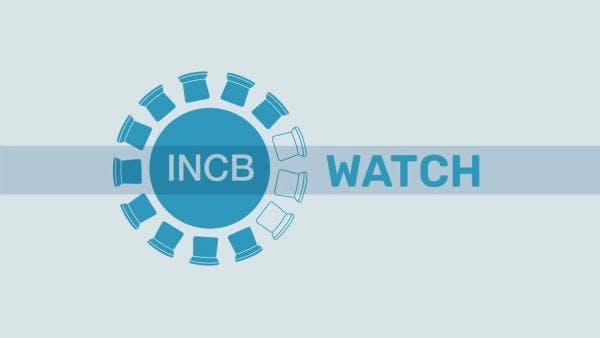INCB President speaks at ECOSOC: A more nuanced hand at the helm?
On July 15th 2014, the International Narcotics Control Board (INCB) presented its Report for 2013 to the Economic and Social Council (ECOSOC) of the United Nations. This provided the occasion for its new President Dr Lochan Naidoo to make a statement to the assembled delegates.
The tone of the early contributions of Dr Naidoo has compared favourably with the antagonistic style of his predecessor, Mr Raymond Yans. He has highlighted the enabling principle of the three drug control treaties, centred on the Board's role in ensuring access to essential medications for the huge numbers of people denied such access presently. In this presentation, he discussed the contents of the Report for 2013 – parts of which have earned strong criticism from IDPC (we will publish our official response to the report in the coming weeks) – and the need to improve access to internationally controlled drugs for medical and scientific purposes, which we continue to support.
Before the assembled delegates of ECOSOC, Dr Naidoo repeated the INCB's judgement that Uruguay is contravening the drug control treaties by establishing a regulated market for cannabis, and expressed concern regarding the legalisation of the substance in Colorado and Washington; interestingly, in the latter case there was no outright claim that the US was contravening the conventions. Anxieties were also expressed regarding the expanding opium poppy cultivation in Afghanistan, and other areas of concern to the Board were reviewed.
Dr Naidoo closed by turning his attention to this critical period in the life of the international drug control system. 'At this time when some are considering alternative approaches and when some jurisdictions are pursuing paths that are not consistent with the conventions', he reminded delegates that the core aim of the conventions is to protect health and well-being, that they allow flexibility to governments in their choice of punishment for drug offences, and that the INCB had, earlier this year, 'encouraged states to consider the abolition of the death penalty to drug-related offences'. Consequently, the position of the INCB continues to be conflicted as regards the reforms sought by IDPC and others. There is an inherent conservatism about the Board stemming largely from its mandate under the 1961 convention, which assigns to it the role of monitoring treaty compliance. This may however be tempered by what appears to be a dawning recognition that there are major changes in the wind, and by the greater flexibility at which the INCB's new President has hinted in his early interventions. The direction the Board will take remains to be seen.
Keep up-to-date with drug policy developments by subscribing to the IDPC Monthly Alert.
Topics
Regions
Related Profiles
- Economic and Social Council (ECOSOC)
- International Narcotics Control Board (INCB)
